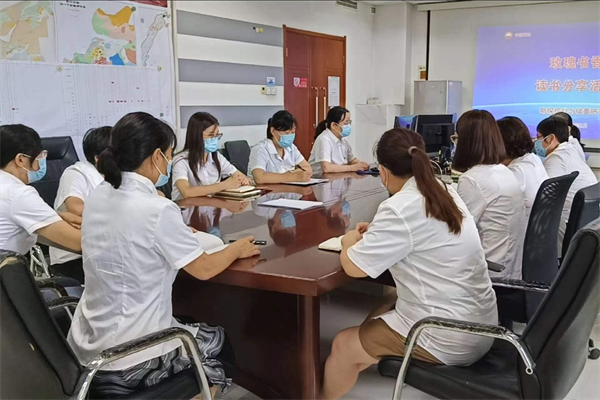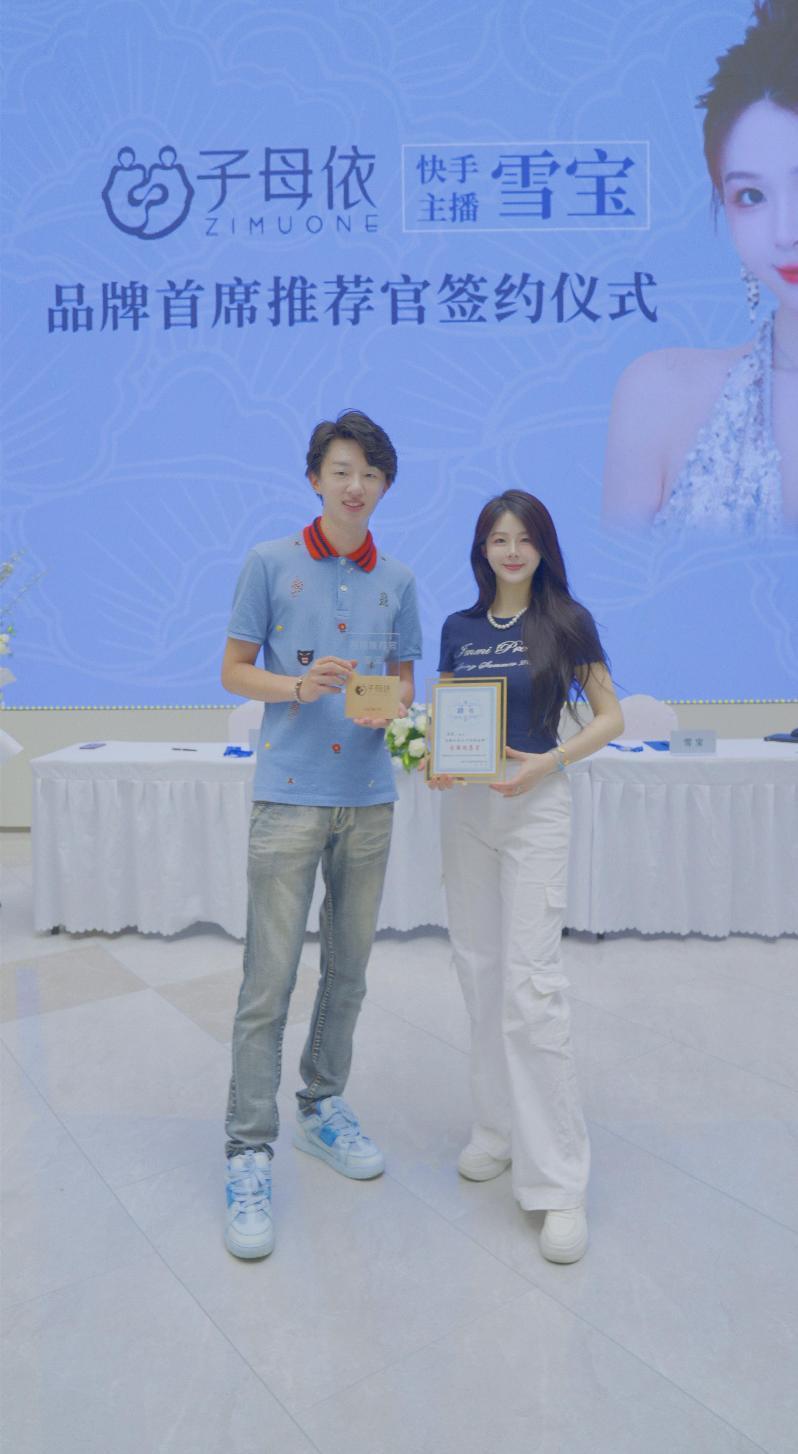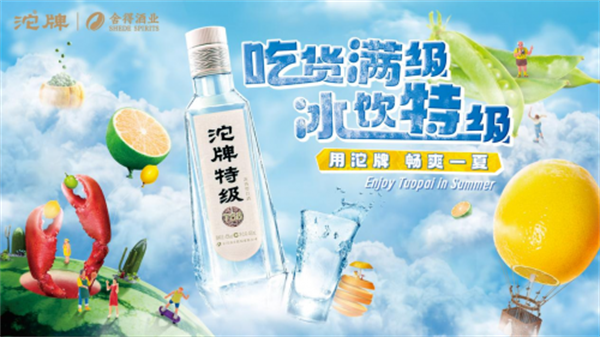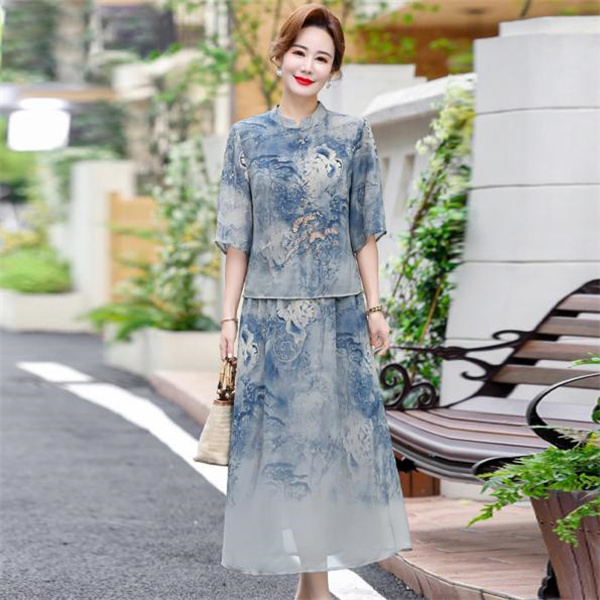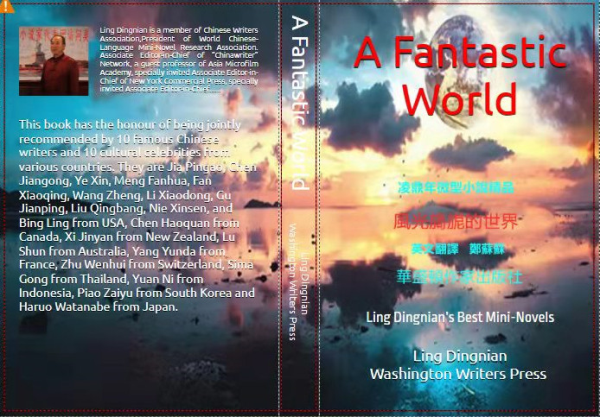
江苏太仓作家、世界华文微型小说研究会会长凌鼎年的第61本集子《风光旖旎的世界——凌鼎年微型小说精品》(双语版),2022年3月在美国华盛顿作家出版社出版。该书由澳籍中国学者郑苏苏翻译,是以西苑出版社2017年12月出版的《永远的箫声》一书为蓝本翻译的,共收录50篇微型小说作品,约16万字。澳洲作家,曾任澳大利亚驻广州总领馆二等秘书Patrick McGowan(中文名字:麦高文)为翻译集子写了《逍遥游——发自澳洲麦高文的心声》的代序。
凌鼎年的作品题材涉及面广,故事精彩,寓意深刻,手法多变,语言精炼,阅读之,既是文学的享受,也是轻松学习英语、汉语的好文本。
《风光旖旎的世界——凌鼎年微型小说精品》(双语版)定价13.5美元。亚马逊网全球发行,美国、英国、德国、法国、意大利、加拿大、日本、澳大利亚、爱沙尼亚等国家有纸质书与电子版书邮购,荷兰、巴西、墨西哥、印度等有电子版书邮购。
华盛顿作家出版社主要出版英汉双语纸本书、英文纸本书、中文电子书,出版后通过亚马逊网站(Amazon)向全球发行,进入图书馆采购系统。
郑苏苏在2019年翻译过凌鼎年的微型小说集子《五彩缤纷的世界》,在美国南方出版社出版,亚马逊全球发行。作为《五彩缤纷的世界》之姐妹集,为了组合成一个翻译系列,本书取名为《风光旖旎的世界》,郑苏苏正在翻译的凌鼎年的第三本微型小说集子取名为《扑朔迷离的世界》,预计6月完成翻译。
李诗信
亚马逊购书国家:
国家代号 纸本书、电子书购书网址
美国 US https://www.amazon.com/dp/B09S5ZPXKD
英国 UK https://www.amazon.co.uk/dp/B09S5ZPXKD
德国 DE https://www.amazon.de/dp/B09S5ZPXKD
法国 FR https://www.amazon.fr/dp/B09S5ZPXKD
爱沙尼亚 ES https://www.amazon.es/dp/B09S5ZPXKD
意大利 IT https://www.amazon.it/dp/B09S5ZPXKD
日本 JP https://www.amazon.co.jp/dp/B09S5ZPXKD
加拿大 CA https://www.amazon.ca/dp/B09S5ZPXKD
澳大利亚 AU https://www.amazon.com.au/dp/B09S5ZPXKD
以下国家可买电子书:
荷兰 NL https://www.amazon.nl/dp/B09SHT6294
巴西 BR https://www.amazon.com.br/dp/B09SHT6294
墨西哥 MX https://www.amazon.com.mx/dp/B09SHT6294
印度 IN https://www.amazon.in/dp/B09SHT6294
简要提示:如果不用这些网址,只需要在亚马逊网页上用本书的英文书名搜索,同样可以快速找到购书网页
附凌鼎年原作与郑苏苏翻译的英文版
荷香茶(小说)
凌鼎年
周家世居古庙镇好几代了,早先是镇上的大户人家。到周寒冰父亲这一代已败落了,所幸的是周寒冰父亲留给了他一栋平房。房是老房子,不起眼,院子很大,院中还有个小水池,依稀能见旧时私家园林的轮廓。
周寒冰最喜欢的是周敦颐的《爱莲说》,认为这是周家的骄傲。虽说查了几次也未查到他是周敦颐一脉后裔的文字证据,但他自认为至少是周敦颐的精神后裔。
有了这种想法后,他把业余时间全放到了种荷上。他把淤塞的小池拓宽拓阔,把池中之泥堆成土坡,坡上植梅,池中种荷。开春,他欣赏“小荷才露尖尖角,早有蜻蜓立上头”的景色;入夏,他陶醉于“映日荷花别样红”的意境里;深秋,他体会“留得残荷听雨声”的趣味。
渐渐,周寒冰不满足于一般性地种一池荷花了,他开始搜寻荷花佳品。功夫不负有心人,他先后觅到了大洒锦、重台莲、并蒂莲、红千叶、寿星桃、千瓣莲、大碧莲、中日友谊莲等名贵品种。像大洒锦,花型大,香味浓,颜色奇,白底红边蓝镶条,宛如荷花中的皇后。周寒冰对这亭亭净植,香远益清的花中君子爱之日深。推而广之,他又爱上了碗莲,他种了一盆又一盆,其中有“白雪公主”“娇客”“娃娃莲”“醉杯”等皆是名品名种。几年下来,他家里,院中有荷,池中有荷,窗台有荷,书桌上有荷,大大小小,一百多盆,每到夏秋之际,周寒冰观叶观花观莲,真所谓其乐无穷。
他客厅里挂的是《墨荷图》《菡萏图》《接天莲叶无穷碧》,书桌玻璃台板下压的是他自摄的荷花照片,他还请同邑的大书法家苏人望先生题写了“国香轩”的斋名,一看便知主人乃真正爱荷人。
常言道“物以类聚,人以群分”,周寒冰交结了一帮荷友,荷花盛开期间,隔三差五小聚赏荷。偶尔还有外地光临小镇的文艺界朋友慕名前来赏荷呢。
凡有客至,周寒冰必以上好的碧螺春茶待客。若是稀客,又是性情中人,若他提前三天知道的话,周寒冰就以荷香茶来待客。
据说荷香茶乃元代大画家倪云林之发明。
周寒冰待夜色漫开,暑气消散后,取龙井一撮,用洁净的白纱布包之,然后选一朵晨来刚开的荷花,放在莲房之上。荷花特点,朝开暮合,夜晚放入,那茶叶即被荷花瓣包裹住了,待清晨荷花绽放时取出。吸收异味乃茶叶之特性,尤以龙井为最,这一小包龙井茶经一夜之吸收,荷香尽吸其中,花露也尽吸其中。可挂阴凉之处晾干,夜来再放入,晨来再取出,再晾干,如是三夜。此龙井茶叶既得荷花之馨香,又得天地之精华。再用洁净之水泡之,立时清香扑鼻,闻之荷香缕缕,呷之沁人心脾,即便最挑剔的老茶客也常常赞不绝口。
荷香茶有季节性,因此能在周寒冰家喝到荷香茶的并不多。
一日,娄城的摄影家裘一鸣打电话来说要拍些荷花照片。
裘一鸣以拍花鸟鱼虫照片见长,特别是拍静物,确实有自己独特的心得。
这次海内外数家单位联合举办“2009国际荷花摄影大赛”,这是国际性大赛,裘一鸣自然看重,拍花本是他的强项,他一副志在必得的样子。据说不少参赛者都涌到苏州拙政园、南浔小莲庄去取景头了。裘一鸣寻思,园林里的荷不免大路货,且你能拍,他也能拍,缺乏与众不同的竞争力。如何发挥静物的特点,又在取景上避免雷同呢?裘一鸣想到了周寒冰家的荷花。说起来仅一面之交,交情不深。不过无妨,裘一鸣甚至认为有些事,浅交比深交好,君子之交淡如水嘛。
裘一鸣在娄城文艺界是有点知名度的。周寒冰对这位同道的拜访,很是高兴,已预先准备了荷香茶。如今古庙镇也用上了自来水,或许是水质污染的关系,用自来水烧开后泡出的荷香茶那味总逊色好几分。因此周寒冰都是用井水的。当然,按古人说法,最好是无根之水,即天落水。也是巧,前天一场雨,周寒冰收好一小缸夏雨水呢。
裘一鸣一到,好客的周寒冰就要泡荷香茶待之。裘一鸣摆摆手说:“先别忙喝茶,早晨的光线最柔和,最适合拍带露荷花。先拍摄,再喝茶,好不好?”
这种艺术家的敬业态度立时博得了周寒冰的好感。于是,两人来到院中,周寒冰如数家珍地一一告知这盆叫什么名,那盆叫什么名,这盆以花型大闻名,那盆以香气足传世……
裘一鸣心不在焉地听着,他的眼睛却如鹰隼般扫视着每片叶,每朵花,从不同的角度捕捉着别具一格的画面构图。“好花,太好了。”不一会儿,他就沉浸在自己的发现之中,似乎已忘了周寒冰的存在。
周寒冰倒并不在乎他这种态度,他反认为搞艺术的就该有这种痴迷劲头。
裘一鸣拍了几张后,发现周寒冰一直在身边陪着就对他说:“你忙你的,我一个人拍,静心些。”
周寒冰想想也是,怕干扰了裘一鸣的构思,就悄悄回了屋。他泡好了荷香茶,只待裘一鸣拍好,一起赏荷品茗,聊上一聊。
裘一鸣整整拍了两个小时才恋恋不舍地回到屋来,那脸上抑制不住兴奋。他望着那满院的荷花说:“如果我家有这么多荷花,每天早上来选景拍几张,不获奖我不姓裘。”
“随时欢迎你来拍。”周寒冰很真诚。
“我走了,荷香茶下次来喝。我得赶紧回去冲印出来,所谓先睹为快。”
周寒冰虽觉遗憾,却很理解他,一直把裘一鸣送到门口。
送走裘一鸣后,周寒冰才发现裘一鸣为拍摄到理想的荷花图,做了不少所谓的艺术加工,诸如这盆摘掉一柄荷叶,那盆剪掉一朵荷花插在这盆里,或者剪了几盆的莲子,集中插一盆中……
周寒冰对荷花感情之深,有如生命,他甚至连残荷都轻易不剪枝修叶,没想到裘一鸣他会如此对待神圣的荷花。周寒冰对他的好印象一下丧失殆尽。周寒冰气呼呼地回到屋里把为裘一鸣泡的荷香茶泼了,心里想,幸亏他没喝,他这种人不配喝荷香茶。
荷香茶
The Lotus-Scented Tea
Having dwelled in Gumiaozhen Town for several generations, the Zhous used to be a rich and influential family. By the time Zhou Hanbing’s father inherited the family estate, the household had come down in the world. Fortunately, his father has left a one-storied house to him. Being an old house, it is not attractive in appearance but it has a large courtyard. With a pond in it, the courtyard now still faintly reveals the remaining charm of a private garden which existed a long time ago.
Zhou Hanbing is very fond of Ode to the Lotus Flowers written by Zhou Dunyi (a philosopher of the Northern Song Dynasty). He feels proud of this famous writer who wrote the beautiful prose. Though he has failed to find out, through repeated research, any written evidence that he is a real descendant of Zhou Dunyi, he still considers himself a spiritual descendant of this great writer.
Ever since he had this idea in mind, he has spent all his spare time on lotus growing. He has had the silted-up pond expanded horizontally and vertically and then, with the mud dredged from the pond, he has heaped up the earthen slope. He has planted plum trees on the slope and grows lotus in the pond. When spring begins, he enjoys the scene of ‘a new bud has just appeared in the shape of a tiny spearhead, whereas a dragonfly is already resting on this nice point.’ At the beginning of summer, he is intoxicated with the artistic ambience of ‘the lotus flowers in the sun appearing especially red.’ In late autumn, he savours the pleasure of ‘listening to the sound of rain pattering on withered lotus leaves.’
Gradually, Zhou Hanbing became less and less satisfied with the state of growing a pond of only ordinary lotus. He began to seek rare species of lotus. As hard work always yields results, he has found one after another valuable species such as Large Blotched, Heavy Lotus, Twin Flowers on One Stalk, Red Chiba, Longevity Peach, Thousand Petals, Big Lotus and Sino-Japanese Friendship Lotus. The species called Large Blotched has large flowers, overpowering scent and unique colour — its white petals are rimmed with red. All these splendid features make it appear as the queen of lotus. Zhou’s affection for lotus, the noble flower which stands straight and gracefully and spreads its sweet scent quite far, grows stronger and stronger. His fondness of lotus extends and he also loves its analogue — nelumbo nucifera. He grows one pot after another of this tiny lotus. The rare species he has collected include ‘Snow White’, ‘Charming Visitor’, ‘Baby Lotus’ and ‘Drunken Cup’. Several years’ collection and cultivation have seen lotus growing everywhere in Zhou’s home: in the courtyard, in the pond, on the windowsills as well as on his desk. Big or small, there are altogether more than 100 pots of lotus in his home. Every year when summer is changing into autumn, it is an immense pleasure for him to appreciate the beauty of lotus by viewing their leaves and flowers.
Hanging on the wall of his living room are three paintings — ‘Lotus Flowers Painted in Black Ink’, ‘The Picture of Lotus Flowers’ and ‘The boundless green of lotus leaves stretches far into the horizon’. Photographs of lotus flowers which have come from his own camera are placed under the glass top of his desk. He asked a famous calligrapher named Su Renwang, who is his fellow townsman, to write an inscription for his home which he calls ‘the House of National Flowers’. This name is a clear indication of the fact that the owner of the house is an authentic lotus lover.
As a saying goes, “Things of a kind come together, people of a mind fall into the same group.” Zhou has made friends with a group of lotus lovers. When lotus flowers are in full blossom, they often have casual get-togethers to feast their eyes on lotus flowers. Occasionally, there are people of the art and literary circles who, attracted to Zhou’s lotus garden by its reputation, have come from other cities to delight in viewing Zhou’s lotus flowers.
Whenever he has visitors, Zhou always brews best-quality Biluochun tea to treat his guests. If the visitor is a rare guest and also an unsophisticated person and if Zhou is informed of his coming three days in advance, he will prepare lotus-scented tea to treat this guest.
It is said that lotus-scented tea was invented by Ni Yunlin, a famous painter of the Yuan Dynasty.
Zhou waits until the darkness of night has prevailed in the sky and the heat in the air has dissipated. Then he gets a pinch of Longjing tea leaves and use a piece of clean gauze to wrap these leaves. He selects a lotus flower which has just bloomed in the morning and places the ‘tea-bag’ on top of the pistil. A lotus flower opens in the morning and closes at night. So if the ‘tea-bag’ is placed on top of the pistil in the evening, the tea leaves will soon be wrapped by the petals. Next day on early morning the ‘tea-bag’ will be taken out when the flower is in full bloom. Tea leaves have a specific property of absorbing a strange odour and Longjing tea leaves top others in this respect. This tiny bag of Longjing tea leaves, having breathed in and out overnight, has absorbed the fragrance of a lotus flower and has also taken in the moisture of dew which stayed on the petals. The wet ‘tea-bag’ can be air-dried in a shady and cool spot. When evening comes it will be placed on top of the pistil of a newly opened lotus flower; the next morning it will be taken out from inside the flower and then air-dried. The whole process will be repeated and when the third night is past, the Longjing tea leaves have not only absorbed the lotus aroma but also breathed in the essence of the universe. As soon as clean boiling water is poured into the container with this tea-bag in it, a delicate fragrance will assail the nostrils. The tea gives out the smell of fragrant lotus flowers. A sip of it makes you feel refreshed all over your body. Even the most choosy, experienced tea lovers very often cannot stop praising this unique tea.
The lotus-scented tea is a seasonal delicacy. Therefore, not many people have had the luck of tasting it in Zhou Hanbing’s home.
One day Qiu Yiming, a photographer from Louchen made a telephone call to Zhou Hanbing, saying that he would like to visit Zhou’s home to take photographs of lotus flowers.
Qiu Yiming is especially good at photography involving flowers, birds, fish and insects. His photos, still-life photography in particular, have a distinctive style of their own.
The ‘2009 International Lotus-Flower-Themed Photographic Competition’, which is jointly sponsored by various overseas and domestic organizations, is a major international competition. It is surely regarded as very important by Qiu. As still-life photography of flowers is his forte, Qiu is determined to win. It is said that quite a few competitors have swarmed to the Humble Administrator’s Garden in Suzhou or the Little Lotus Village in Nanxun. Qiu was pondering that the lotus flowers in public gardens are too common. Besides, everybody can take pictures of those flowers, thus making their photos lack competitiveness as they are not different from the common run. How to make full use of the characteristic of still life? How to avoid similarities in finding a view to shoot? Qiu Yiming thought of the lotus flowers in Zhou Hanbing’s home. Regarding their relationship, they had met only once and they were only on nodding terms.
However, Qiu reckoned that under certain circumstances a nodding acquaintance might be better than a close relationship, just as the saying goes, “A hedge between keeps friendship green.”
Qiu Yiming has some fame in the art and literary circles of Loucheng. Zhou felt very happy to know that this personage, also a lotus lover, was coming to visit him. He had prepared in advance lotus-scented tea. Now the residents of Gumiaozhen Town have running water to use. Probably because of water pollution, lotus-scented tea brewed by running water does not taste good enough. Therefore, Zhou always uses well water to make this special tea. Of course, according to the conventional practice of ancient people, the best way was to use ‘water without roots’, or in other words, ‘water coming from heaven’. It so happened that there had been rain the day before yesterday and Zhou had collected a jar of summer rain water.
When Qiu Yiming arrived, Zhou was ready to brew lotus-scented tea to treat him. Qiu waved his hand and said: “There is no hurry to drink tea. The morning light is soft and it’s good for taking pictures of lotus flowers with dew. Is it all right to take pictures first and then drink tea?”
This professional dedication of real artists immediately made a good impression on the host. So the two went to the courtyard. Having everything at his fingertips, Zhou told Qiu what species this pot of lotus was and what that one was called; this species was noted for its large-sized flowers and that one was famous for the overpowering fragrance of its flowers, so on and so forth.
Listening to Zhou absent-mindedly, the photographer, like a hawk searching for prey, passed his eyes over each individual leaf and every single flower. Viewing from different angles, he was seeking the best composition for a unique picture to be taken. “Beautiful flowers! Absolutely wonderful!” He was immersed in his own findings and seemed to forget Zhou’s existence.
Zhou did not care about Qiu’s attitude toward him. On the contrary, he considered this to be the kind of infatuation a real artist should have.
It was not until he had snapped several pictures that Qiu found Zhou had been by his side all along. He said to Zhou: “Don’t worry about me. I will be able to concentrate my mind if I take pictures on my own.”
Zhou considered what Qiu had said to be true. In order not to disturb Qiu’s concentration on his work, he quietly went back to his room. He brewed lotus-scented tea and intended to wait for Qiu to come to enjoy the tea together and have a chat as well when the photographer had finished his work.
Two whole hours had passed before Qiu reluctantly came back to the room. His face was beaming with excitement. Looking at the lotus flowers which could be seen everywhere in the courtyard, Qiu uttered: “If I had so many lotus flowers at home and I were able to take several pictures every morning, I would be a damned fool should I fail to win a big prize.”
“You may come to take pictures at any time,” Zhou said in all sincerity.
“I have to go now and I will taste lotus-scented tea next time. I should go home to develop and print the snapshots as soon as possible. This is what we describe as taking delight in seeing unknown treasure first in time.”
Though feeling a little regret, Zhou understood this fellow’s eagerness in seeing his work. He accompanied Qiu to the door.
Only after he had seen Qiu off did he find that this photographer, in order to get ideal pictures of lotus flowers, had done a lot of “artistic treatment”, such as getting rid of a lotus leaf in this pot or cutting a flower and removing it from that pot to another one. Worst of all, he cut lotus pods from several pots to put them together into a single pot.
Zhou cherishes a deep affection for lotus flowers and sees them as his own life. Even with withered lotus plants, he seldom prunes or trims their stems and leaves. He did not expect that this artist would mistreat the sacred lotus flowers. The good impression that Qiu left on him had suddenly vanished. He sailed into his room in a huff and threw away the lotus-scented tea he had made for Qiu. He said to himself: “Luckily he didn’t drink it. This type of person does not deserve to enjoy this noble tea.”
药膳大师(小说)
凌鼎年
在娄城餐饮界,有个不成文的规矩:凡开张饭店的,你不请市里的头儿脑儿可以,不请场面上露脸的那些款爷富婆可以,但假如你不请戚梦箫光临,不请他说几句好听的,那我敢打赌,你这饭店的生意必好不到哪儿去。
为何?
难道说这戚梦箫比市长还市长,比书记还书记?
嗨,你还真的说对了一半,戚梦箫在餐饮界的知名度牛着呢,外号“美食家”。据说其祖父是清朝皇宫里的御厨,其父亲曾是上海国际饭店特聘掌厨。他本人呢,虽不是啥名厨,却整理出版过一本《娄城历代名菜谱》,还被《美食家》杂志特聘为刊物顾问,连省电视台摄像人员也专程到娄城为他拍摄了《娄城美食家》的专题片。
由于他有如此知名度,娄城的那些老饕们自然十分注意他的动向,他不肯捧场的饭店,他们自然也极少光临。如果戚梦箫在哪个饭桌上哪个场合说了某某厨师,或某某菜味道不错,那必有不少人会慕名去尝一尝。影响最大的一招是戚梦箫闲来无事时还会写篇千把字文,或介绍一只传统名菜、或介绍一道特色名点,文中间或还会批评、表扬一两家饭店或起色了或滑坡了,这就使得戚梦箫的一言一行在一定程度上影响着娄城的餐饮界。因此,宾馆、饭店、酒家的老板谁不巴结他?只要他一到,“戚老,戚老”“老法师”“美食家”之称呼就不绝于耳,必上最好的菜,最靓的汤,让他品评,请他指点,唯恐怠慢了他,得罪了他。
却偏偏有不识相,不拎行情的。这不,刚开张的大学士街的“王记药膳菜馆”,竟没有请戚梦箫。
据知内情人透露,开张前有人提议不请谁都可以,戚梦箫是非请不可的,谁知菜馆的总经理王一脉竟然大言不惭说:“酒香不怕巷子深”,似乎对戚梦箫不屑一顾。
“王记药膳菜馆”的反常举动引起了媒体的好奇,他们很想知道菜馆吸引顾客的绝招何在,就去采访了王一脉。
王一脉告知记者:四百多年前李时珍来娄城拜访其先祖王世贞时,请王世贞为《本草纲目》写序,这本《本草纲目》在王世贞处一放就放了十年,直到1590年王世贞临死前才看完了全书,写出了序言。其实有一个细节外人不知,王世贞请人抄录了其中的药膳部分,共有400多个食疗医方呢,这个食疗医方成了他们王家的传家宝。现在传到了他手里,他正是根据这些食疗医方才开这爿药膳馆的——哇,来头还不小呢,老记者们一个个顿时来了兴趣,要请王总经理详谈一下有关药膳知识。
谁知这一问,问到了王一脉的脉上,他侃侃而谈起来,什么“虚者补之”“实者泻之”“寒者热之”“热者寒之”;什么“肺宜辛,心宜甘,脾宜苦,肝宜酸,肾宜咸”;什么“春不食肝,夏不食心,秋不食肺,冬不食肾”……
一套一套的,听得见多识广的老记者们也一愣一愣的。王一脉趁热打铁,邀请老记者们吃一顿便饭,尝一尝他的手艺,免得被人说“天桥的把式——光说不练。”
老记者们已被他说得口水都要滴出来了,都说:“你不请我们吃,我们也不走了。”
王一脉叫手下端来了玉米须炖龟、姜汁拌海螺、泥鳅钻豆腐、百合鲤鱼、天冬炖鸡、陈皮扒鸭掌、杜仲腰花、荸荠狮子头、枸杞汁熏麻雀;素菜类有琥珀莲子、冬菇萝卜球、口蘑椒油小白菜、酿煎青椒、韭菜炒胡桃、葵花豆腐;还有竹荪芙蓉汤与茯苓烙饼小点心,最后上了芡实粉与山药粥各一盆。
吃得老记者们一个个都说:“味道好极了!”
王一脉呢在边上介绍如何选料、用料、配料,如何掌握刀法、器具、火候,如何做到形、色、香、味俱全,还一口气说了要“不偏不倚,不过不离,不韧不糜,不老不嫩,不坚不滑,不燥不寒,不涩不腻,不咸不淡,不艳不暗,不大不小”,听得老记者们个个目瞪口呆,其中一个专跑饮食条线的老记者由衷地说道:“你王总才是真正的美食家,今天我们算是开了眼界,享了口福,饱了耳福。”
第二天,市报上一篇《访药膳大师王一脉》的专访登了将近半版,还配发了照片。
电视台则在《生活》栏播放了《别具一格的药膳菜》;电台则播了《真正的美食家王一脉访谈录》;网站还把“陈皮野兔肉”“田七鸡杂炖鲫鱼”“东坡童子甲鱼”“绿豆汤西瓜盅”“蟹黄鱼翅”“当归枸杞鸡”“壮阳乌龟汤”等盆菜的照片也上了网。
这股宣传势头使得“王记药膳菜馆”一时名声大噪,食客盈门。
戚梦箫原本以为王记药膳菜馆早晚会请他的,但现在看来这种可能性很小很小,他有点坐不住了。他是个吃遍娄城皆上宾的美食家,现在如此美食品尝不到,他浑身难受。从另一方面讲,他也实在想去实地看一看、品一品,到底是名大于实呢,还是实大于名,可他又实在不好意思自己跑上门去吃。总算有人看出了道道,请了戚梦箫去品尝药膳菜。
戚梦箫去之前,特地翻了唐代孟洗的《食疗本草》、南唐陈士良的《食性本草》、明代汪颖的《食物本草》等,以防到时出洋相。
无论怎么说,戚梦箫乃老吃客了,嘴早吃得极刁极刁,但当他品尝了百花鱼肚、香酥飞龙、柳蒸羊羔、蝴蝶海参、卤猴头菌、燕窝人参羹等药膳菜后,一语不发。席散后,他突然大喊道:“你们把老板叫出来!”
请客者蓦然一惊,怕戚梦箫说出些不得体的话来,忙说:“戚老,你今天喝多了,走吧,走吧。”
哪想到戚梦箫坚持不肯走,非要见王一脉不可。
王一脉见是戚梦箫,忙说:“失敬失敬!”
戚梦箫也不客套,直截了当说:“虚头话不说了,拿笔墨来!”
笔墨拿上来后,戚梦箫略一凝神,提笔写下了“良厨有如良医,诚药膳大师也”。落上款后,他笔一扔,头也不回地走了。
药膳大师
The Medicated Diet Master
In Loucheng catering circles there is an unwritten convention: when a restaurant is going to open for business, it is acceptable not to invite leaders of the municipal government to the dinner table for the celebration; it is also no problem not to invite those male and female moneybags who love to make a public appearance.
However, if you do not invite Qi Mengxiao to be present at the dinner party, nor do you ask him to say some fine words, I bet that the business of your restaurant is to be far from good.
Why?
Is Qi Mengxiao more powerful than the mayor? Is he more influential than the Party secretary?
Hey, you almost put it right! His fame in the catering circles is so high that he has earned the nickname “Gourmet”. It is said that his grandfather was an imperial chef in the palace of the Qing Dynasty and his father was specially hired as the chief cook by the Shanghai International Hotel. Though Qi himself is not anything like a famous chef, he has compiled and published a cookbook entitled “Loucheng’s Famous Recipes of All Ages”. He has been invited to be a consultant by the Gourmet Magazine. Even the cameraman of the provincial TV station made a special trip to Loucheng to shoot a television special about him which was named “The Gourmet of Loucheng”.
As Qi is so famous in Loucheng, those gourmands in this city naturally pay much attention to what he is up to. If a restaurant failed to get his support, it was only natural that this restaurant would be rarely visited by those people. If Qi, on this or that occasion, praised a chef or said that he had found a dish quite delicious, there would be many people who were attracted to the restaurant where that chef was cooking or that particular dish was on its menu. The most influential thing is his one-thousand-character essays which he writes in his spare time. In his essays he either introduces a traditional dish or recommends a specialty delicacy. Between the lines he may say something about one or two restaurants, praising a restaurant for making progress in its cooking skill or criticizing another for going downhill in its cuisine. All this has made what Qi says and does, to a certain extent, produce an impact on the catering circles of Loucheng City. Among the bosses of guesthouses, hotels and restaurants, which of them did not try to carry favour with him? Every time he comes to attend a dinner party, various respectful forms of address such as “venerable Qi”, “revered old Qi”, “Old Master” and “Gourmet”, one after another can be heard. Well-prepared dishes and very nice soups are presented to him for appraisal and advice. All these have to be done for fear that he might find them lacking in proper etiquette and respect.
Nobody expected that there would be somebody who was so tactless as not to follow the herd. Here it is: the newly opened Mr Wang’s Medicated Food Restaurant on Daxieshi Street, to everyone’s surprise, did not invite Qi Mengxiao.
It was revealed by an insider that before the restaurant began doing business somebody made a suggestion that it would be alright not to invite anybody else but Qi Mengxiao. He was the only one who should be invited. Quite unexpectedly, Wang Yimai, the general manager of the restaurant bragged unblushingly: “Good wine sells well even deep in an outlying lane.” It seemed as if Wang Yimai regarded Qi Mengxiao as unworthy of notice.
The unusual behaviour of Mr Wang’s Medicated Food Restaurant aroused the curiosity of the media. They were eager to know what kind of secret recipe this restaurant had to attract customers and interviewed him.
Mr Wang told the journalists such a story: More than 400 years ago when Li Shizhen came to Loucheng to visit Mr Wang’s ancestor— Wang Shizhen (a famous writer of the Ming Dynasty), the former asked the latter to write a preface to his book “Compendium of Materia Medica” (a classical work on Chinese materia medica compiled by Li Shizhen in the Ming Dynasty). This book remained idle in Wang Shizhen’s home for 10 years. It was not until the year 1590 when Wang Shizhe was approaching his end that he had just finished reading it and wrote the preface. As a matter of fact, there was a detail which was unknown by outsiders. Wang Shizhen asked someone to copy out from the book the medicated diet part. This part contained altogether over 400 food therapy prescriptions and became an heirloom of the Wang Family. It has now passed on to Mr. Wang. Based on these food therapy prescriptions he has established this medicated food restaurant. —Wow, what strong backing he has! The interest of all the senior journalists present was immediately aroused. They asked General Manager Wang to give a detailed account of what medicated food was.
By coincidence their query happened to be his favourite topic. He began to talk with ease and assurance. First he talked about various therapies: diseases of the deficiency type should be treated with replenishing methods; a sickness coming from overeating should be treated by a formula for purgation; symptoms caused by cold factors should be treated by giving thermal therapy; a heat syndrome should be treated with drugs of a cold nature. Then he related what kind of food was good for our organs: pungent food is good for the lung; sweet food for the heart; bitter food for the spleen; sour food for the liver; salty food for the kidney. He also stated what food should be abstained from what season: no animal livers in spring; no animal hearts in summer; no animal lungs in autumn; no animal kidneys in winter, and so on and so forth. One theory after another was released. Even those senior journalists who were experienced and knowledgeable were stunned by what they heard. Seizing time by the forelock, Mr Wang invited the journalists to have an informal dinner to test his cooking skill. He did not want other people to regard him as something like “the masters in Tianqiao, all for show and no real stuff.”
The journalists, whose mouths were already watering after hearing his narration, said in chorus: “Even if you didn’t invite us, we wouldn’t leave.”
Mr Wang told his assistants to bring in a variety of dishes. They were stewed turtle with corn tassel, loach dipped into bean curd, carp cooked with lily bulbs, stewed chicken with lucid asparagus, braised duck webs seasoned with dried tangerine peel, stir-fried pork kidney with bark of eucommia, meatballs containing water chestnut, smoked sparrows seasoned with Chinese wolfberry juice. There were also dishes mainly made of vegetables, i.e. lotus seeds cooked to have an amber appearance, meatballs containing mushroom and radish, green pepper stuffed with minced pork, stir-fried chives and walnuts, bean curd dotted with sunflower seeds. The dishes were followed by two desserts: bamboo fungus and egg soup, Fuling pancake. The last presented to the dinner table were a bowl of porridge of seed powder of gordon euryale and a bowl of Chinese yam porridge.
The journalists were so impressed by the food that they all uttered: “The taste is marvellous indeed!”
Standing by the dinner table, Mr Wang explained to them how to select, use and assort food ingredients; how to bring into full play the skill with kitchen knives; how to make better use of cooking utensils and how to control the strength and duration of fire in cooking; how to make every dish superb in appearance, colour, smell and taste. Then he rattled off the importance of being “just right in taste and flavour”, ‘just right in cuisine and food”, “neither tough nor pulpy”, “neither overdone nor too rare”, “neither using foodstuffs which may cause indigestion nor selecting anything that may induce lientery”, “neither containing food ingredients which may produce dry heat nor adding anything that may bring coldness into the body”, “neither acerbic nor greasy”, “just right in saltiness”, “neither too bright nor too dark”, “neither too big nor too small”, etc. Mr Wang’s narration dumbfounded all the listeners. One of them, a senior journalist who specialised in writing reports on catering topics said sincerely: “It is you, General Manager Wang, who can be regarded as a real epicure. Today’s experience is an eye-opener to us. Today we not only have the luck to enjoy delicious food but also have the gratification of listening to a wonderful lecture on food and cooking.”
On the following day a special article after the interview appeared in the city newspaper. Entitled “Interviewing Medicated Diet Master Wang Yimai”, this article occupied nearly half a page with photos attached.
The local TV station broadcasted in its “Life forum” a program “The Medicated Diet with a Unique Style”. The radio station put on air “An Interview with a Real Epicure Wang Yinai”. A website demonstrated to viewers various photos such as “hare’s meat seasoned with dried tangerine peel”, “braised crucian carp and chicken giblets mixed with pseudo-ginseng”, “Dongpo-style stewed young turtle”, “mung bean soup contained in the rind of half a watermelon”, “braised golden crab-spawn and shark’s fin”, “chicken cooked with Chinese angelica and barbary wolfberry fruit”, “tortoise soup for producing a viagra-like effect”.
This momentum of publicity has helped Mr Wang’s Medicated Food Restaurant shoot to fame overnight, and thus making it packed with customers.
Originally Qi Mengxiao had thought that Mr Wang’s Medicated Food Restaurant would invite him to its dinner table. However, it appeared that the possibility of his being invited was very slim. He began to fidget at this awkward situation. He is a gourmet who had tasted every delicious food which could be found on the menu of this or that restaurant in Loucheng and who had been treated by all the restaurants in this city as a distinguished guest. Now he did not have the luck to taste such wonderful food. He was feeling completely uncomfortable. On the other hand, deep in his mind he was anxious to go to that restaurant to have a look and try the taste of its food. He was eager to make an assessment to find out in this case whether the facts spoke louder than the fame, or vice versa. However, he would feel embarrassed to go to the restaurant on his own and dine there. Finally someone figured out what was in his mind and invited him to go to taste the medicated food.
In order to avoid making a spectacle of himself, Qi Mengxiao, before going there, specially skimmed through some ancient books, such as “Treatise on Dietetic Therapy” compiled by Meng Xi of the Tang Dynasty, “Treatise on Medicated Food” compiled by Cheng Shiliang of the Southern Tang Period, “Foodstuffs and Beverages with Medical Effects” compiled by Wang Ying of the Ming Dynasty.
Anyhow, Qi Mengxiao, being a fastidious eater, has long been extremely picky about what he eats. However, he kept silent after tasting the following medicated food presented to him: stir-fried fish maw arranged in the shape of flowers, crisp fried hazel grouse, steamed lamb fillet, stewed sea cucumber arranged in the shape of butterflies, spiced pot-stewed hedgehog fungus, esculent swift’s nest and sea cucumber broth. When the dinner was over, he suddenly let out a loud cry: “Tell the boss to come here!”
Stunned by the abrupt yelling, the host, for fear that Qi would make inappropriate remarks, hastened to say to him: “Mr Qi, you have drunk too much. Let’s go. Please go!”
The host did not expect his guest would firmly refuse to go. The latter said: “I won’t go unless Wang Yimai comes to see me.”
Seeing that it was Qi Mengxiao who wanted to see him, Mr Wang immediately said: “Sorry for being unable to greet you earlier.”
Not standing on ceremony, Qi said straightforwardly: “I am not going to say any polite formulas. Please bring me a writing brush and ink.”
The stationery was presented to Mr Qi. Holding the writing brush, he concentrated for a while and then wrote down: “A good medicated food chef is like a good physician. Your are really a medicated diet master!” Having signed his name, he left the restaurant without looking back to say anything.
 会员投稿
会员投稿 手机版
手机版 |
悦读频道
|
悦读频道


